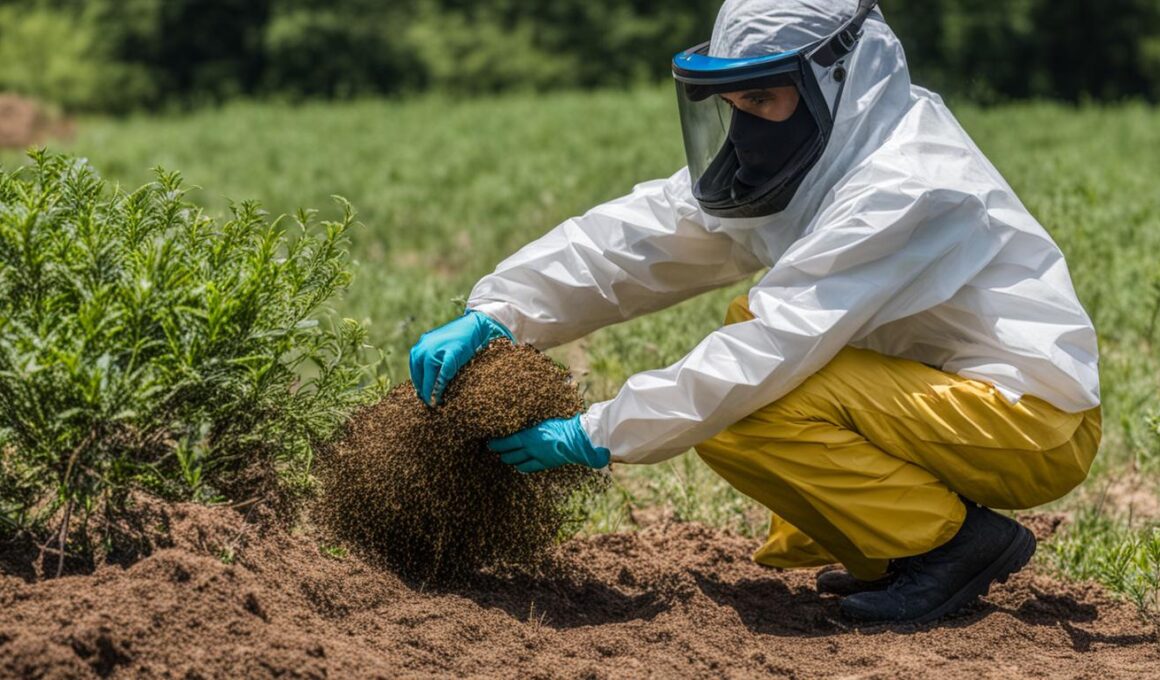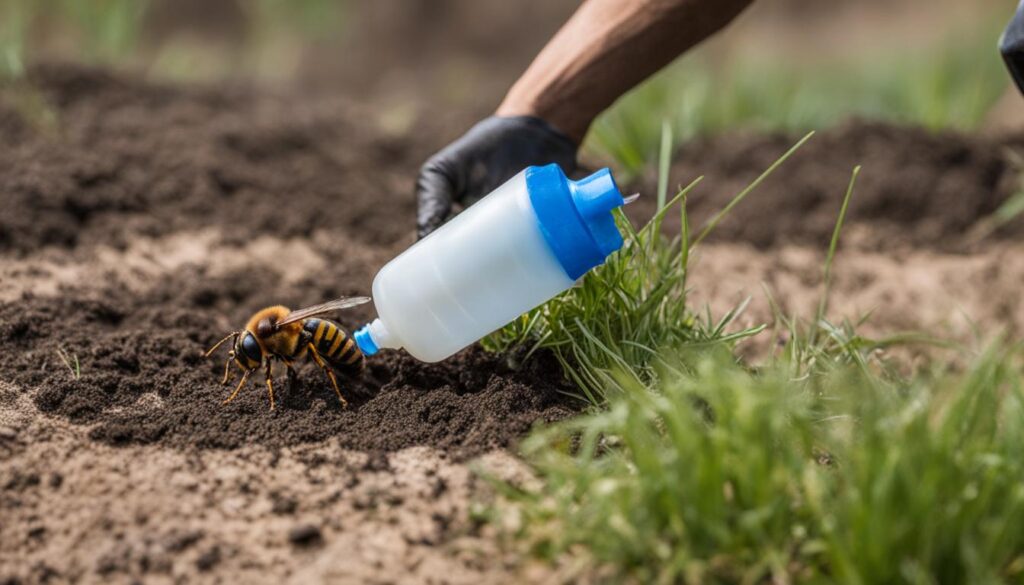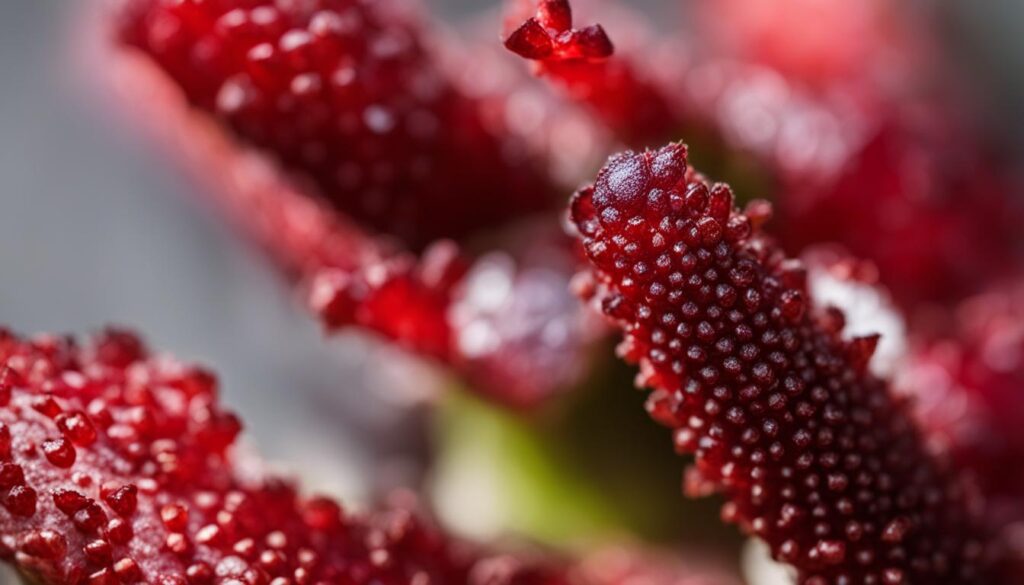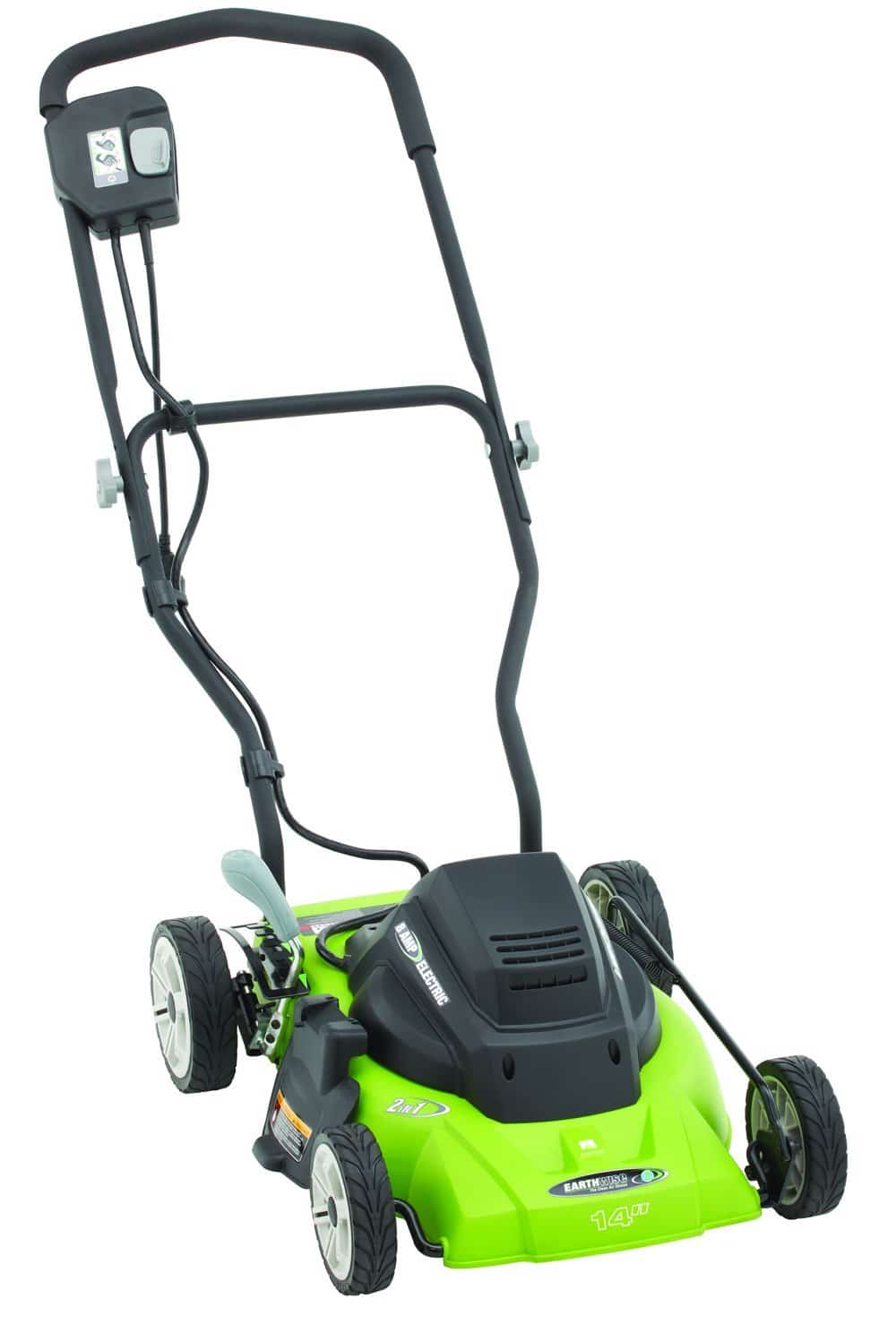Ground hornets can be a nuisance and pose a threat to your outdoor spaces. It’s important to know how to get rid of them safely and effectively. In this article, we will provide expert tips on identifying, preventing, and exterminating ground hornets.
Whether they’ve taken over your backyard or invaded your garden, knowing how to kill ground hornets is essential for maintaining a safe and enjoyable outdoor environment. Handling a ground hornet infestation requires careful planning and execution to ensure both your safety and the successful eradication of these pests.
Here, we will share expert tips to help you safely kill ground hornets. From identifying their nests to using appropriate pesticides, traps, and natural solutions, we will guide you through the process step by step. By following these methods, you can regain control of your property and protect yourself and your loved ones from the dangers associated with ground hornets.
Identifying Ground Hornets
Ground hornets can be easily identified by their unique physical characteristics. Understanding these traits and being able to recognize their nests is essential for effective hornet control and eradication.
One distinguishing feature of ground hornets is their teardrop-shaped abdomen, which sets them apart from other wasp species. Additionally, ground hornets have larger heads compared to other hornet varieties.
To locate ground hornets, it is important to identify their nests. Ground hornets construct large nests made of a papery substance, often found in various locations such as underground or even in the walls of buildings.
Identifying these nests and physical characteristics is crucial for successful hornet eradication. Now let’s move on to the next section, where we will discuss the different pesticides available for ground hornet control.
Pesticides for Ground Hornet Control
In your quest to eliminate ground hornets, synthetic pesticides can be highly effective. Two common types of pesticides to consider are sprays and dust. Sprays are ideal for aerial nests, while dust is more suited for ground nests. Choosing pesticides with jet nozzles ensures better accuracy and coverage, increasing the chances of successful eradication.
When applying pesticides, timing is crucial. It’s best to treat the nests in the early morning or at night when hornets are less active. This increases the effectiveness of the treatment, as more hornets are likely to be present during these times. Be sure to repeat the application as necessary to ensure complete elimination.
Note that while synthetic pesticides can be effective in controlling ground hornets, it’s essential to follow the instructions provided by the manufacturer carefully. Take precautions to minimize the risk to other beneficial insects and wildlife in your garden.
Remember, pesticide use should always be approached with caution. If you are unsure about the appropriate pesticide to use or if you lack the necessary equipment, it may be wise to consult with a professional pest control service. They can assess the severity of the infestation and recommend the most suitable treatment options, ensuring the safety of both you and the environment.
Traps for Ground Hornet Control
Traps can be an effective method to reduce the population of ground hornets and minimize their impact on your outdoor spaces. By utilizing DIY wasp traps, you can take control of the situation and protect yourself and your loved ones from potential stings. The key to a successful trap lies in the enticing bait that will attract the hornets.
For DIY wasp traps, sweet liquids such as sugar water or fruit juice can serve as excellent baits. These liquids emit a fragrance that lures the hornets into the trap. To enhance the effectiveness of your trap, consider adding vinegar to the bait mixture. This will help prevent attracting beneficial bees and focus solely on attracting the ground hornets.
To ensure the effectiveness of the traps, it is crucial to add a small amount of dish soap to the liquid. When a hornet lands on the bait, the dish soap will create surface tension, causing the hornet to sink and drown in the liquid.
When setting up your traps, strategic placement is key. Identify the areas where ground hornets are commonly seen or where their nests are located. Place the traps nearby, ensuring they are easily accessible to the hornets but kept out of reach for children and pets. Adjust the bait mixture according to the time of year, as different seasons may affect the attractiveness of certain scents.
To visualize how DIY wasp traps can aid in your ground hornet control efforts, take a look at the image below:
By incorporating traps into your ground hornet control strategy, you can significantly reduce the population and mitigate the risks associated with their presence. Keep in mind, however, that traps are just one aspect of a comprehensive approach to managing ground hornets.
Natural Solutions for Ground Hornet Control
When it comes to dealing with ground hornets, natural solutions can be an effective and eco-friendly alternative to chemical pesticides. By utilizing natural methods, you can safely eliminate ground hornets from your outdoor spaces. Here are some natural solutions that you can try:
1. Diatomaceous Earth: This fine white powder, made from fossilized plankton, can dehydrate and kill ground hornets. Simply apply it around the nest area to create a barrier that the insects cannot navigate. Diatomaceous earth is safe for humans and pets, making it an ideal natural solution for ground hornet control.
2. Covering the Nest: Covering the nest entrances with transparent plastic can prevent the hornets from leaving or entering, leading to their eventual starvation. This method requires patience and monitoring as it may take some time before the hornets are fully eradicated.
3. Soapy Water: Another effective natural solution is using soapy water. The soap can suffocate the hornets by clogging their spiracles, which are the openings through which they breathe. Mix a solution of soapy water and pour it directly onto the nest or spray it onto the ground hornets to eliminate them.
These natural solutions offer practical and environmentally friendly ways to control ground hornets without the use of harmful chemicals. Incorporating these methods into your pest control routine can help you maintain a hornet-free outdoor space.
Remember, prevention is key when it comes to managing ground hornets. Taking proactive measures, such as eliminating potential nesting sites and removing food sources, can go a long way in preventing infestations. However, if you continue to experience issues with ground hornets or if you have concerns about dealing with them yourself, it is recommended to consult with a professional pest control service for expert assistance.
Preventing Ground Hornet Infestations
To prevent ground hornet infestations, you need to take proactive measures to eliminate factors that attract these pests to your property. By addressing these attractions, you can significantly reduce the likelihood of a ground hornet infestation.
1. Keep outdoor trash cans covered
Ground hornets are attracted to food sources, and uncovered trash cans can be a treasure trove for these pests. Make sure to keep your outdoor trash cans tightly covered to prevent hornets from accessing the food waste. This will help deter them from establishing a nest near your home.
2. Dry up stagnant water sources
Hornets, like other insects, need water to survive. Eliminate any stagnant water sources in your yard, such as birdbaths, ponds, or leaky faucets. By removing their access to water, you make your property less appealing to ground hornets.
3. Seal cracks in the exterior of your home
Ground hornets can find their way into your home through small cracks and openings. Inspect the exterior of your house for any gaps or crevices and seal them properly. This will prevent hornets from entering your home and establishing nests within your walls or other hidden areas.
4. Avoid bright and fragrant flowers
While flowers add beauty to your outdoor space, certain varieties can attract ground hornets. Avoid planting brightly colored and highly fragrant flowers that may draw these pests. Opt for less appealing flower varieties that are less likely to attract hornets.
5. Remove outdoor structures and treat untreated wood
Ground hornets often build their nests in outdoor structures such as sheds, decks, and fences. Regularly inspect these structures and remove any existing nests. Additionally, treat any untreated wood with a protective sealant to deter hornets from nesting in these areas.
By following these preventive measures, you can minimize the risk of a ground hornet infestation on your property. Remember to continuously monitor your outdoor spaces and take immediate action if you notice any signs of hornet activity.
Dealing with Ground Hornet Stings
Ground hornet stings can be painful, but there are steps you can take to treat them effectively. The first crucial step is to disinfect the sting site using mild soap and warm water. This helps to prevent infection and cleanse the area.
If you experience swelling or itching, consider taking over-the-counter oral medication or applying a topical ointment. These can help alleviate the discomfort associated with ground hornet stings. However, it is important to follow the instructions on the medication packaging and seek medical advice if needed.
It’s essential to be aware of the possibility of allergic reactions to ground hornet stings. If you know you are allergic to hornets or experience symptoms such as difficulty breathing, hives, dizziness, or rapid heartbeat after being stung, seek immediate medical attention. Allergic reactions can be serious and may require the administration of epinephrine injections.
Furthermore, it’s important to monitor the sting site and your overall condition after being stung. If you notice any worsening symptoms or signs of infection, seek medical attention promptly. It’s always better to be safe than sorry when it comes to treating hornet stings.
Remember, ground hornet stings can be painful and potentially dangerous, so taking appropriate measures to treat them is essential. In the next section, we will conclude our article by providing some final tips and emphasizing the importance of professional extermination when dealing with ground hornet infestations.
Are the Methods for Killing Ground Hornets Safe for the Environment?
When considering how to kill hornets, it’s important to choose methods that are safe for the environment. Natural options like using peppermint oil or soapy water can effectively eliminate ground hornets without harming the ecosystem. It’s best to avoid chemical pesticides to protect the environment.
Conclusion
To effectively control ground hornet infestations and get rid of these bothersome pests, it is essential to have the right knowledge and tools. By implementing a combination of pesticides, traps, natural solutions, and preventive measures, you can take control of the situation and safeguard your property.
However, it’s important to note that if the ground hornet infestation persists or if you have a known allergy to hornets, it is highly recommended that you seek professional extermination services. Professional exterminators have the expertise and experience to handle these situations safely and effectively, ensuring thorough eradication of the infestation.
When dealing with ground hornets, remember that prevention is key. By eliminating attractants such as open garbage cans, standing water sources, and potential nesting sites, you can significantly reduce the likelihood of a ground hornet infestation in the first place. Additionally, maintaining a vigilant eye for early signs of ground hornets, like their distinct physical characteristics and nest locations, will enable you to address the issue promptly.
In summary, with the right combination of ground hornet control methods and a proactive approach to prevention, you can successfully eliminate these pests from your property. However, if the situation becomes overwhelming or you have a higher risk of complications, professional extermination is always the best option. Don’t let ground hornets take control of your outdoor spaces – take action today and enjoy a hornet-free environment.











